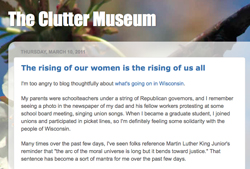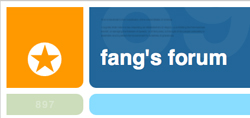I have a piece up at The Blue Review on Wikipedia, Ancestry.com, and the gendering of digital public history. Here’s an excerpt:
Engendering Online History
Wikipedia vs. Ancestry.com: Historianship at a crossroads
Businessweek reports that “genealogy ranks second only to porn as the most searched topic online.” It’s no wonder, then, that Ancestry.com, which for a monthly fee lets anyone search and browse its more than 10 million digitized records of births, marriages, censuses, ships’ passenger lists and more has become a destination for anyone interested in trying her hand at historical research. I say “her” intentionally, as the majority of users—typically around 65 percent—of genealogical sites are women. Ancestry.com is the world’s most-trafficked genealogical site.
Wikipedia, the highly popular online encyclopedia, on the other hand, has a paltry percentage of women actively editing articles—just 8.5 percent by one measure. The sites allow for two different, and sometimes competing, versions of historical practice to emerge. In particular, Wikipedia’s community ethos, although it embraces collaboration and consensus, may actually discourage participation, especially by women—reflecting a problem that also exists in the historical profession.


